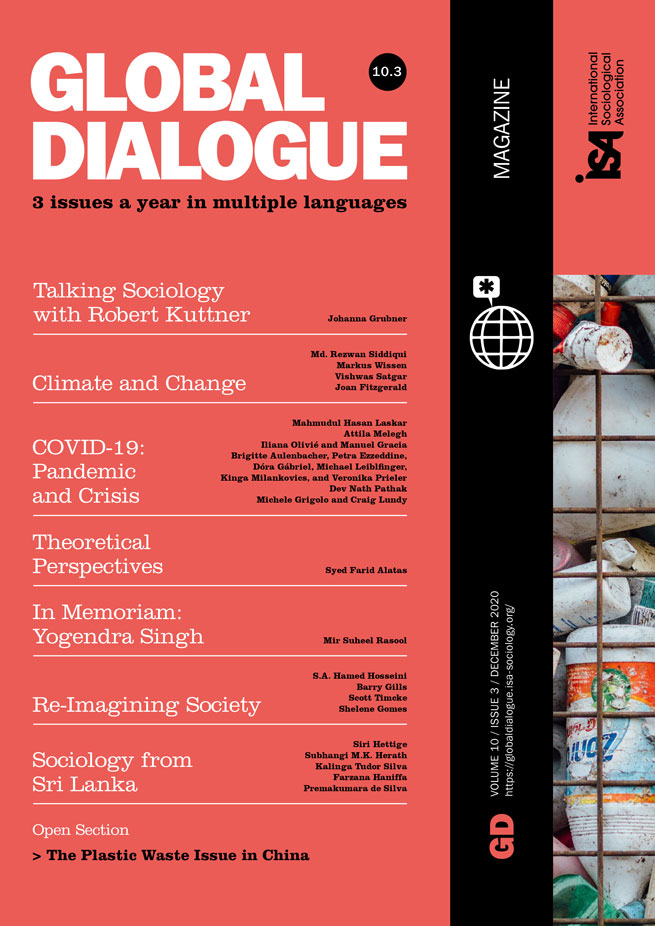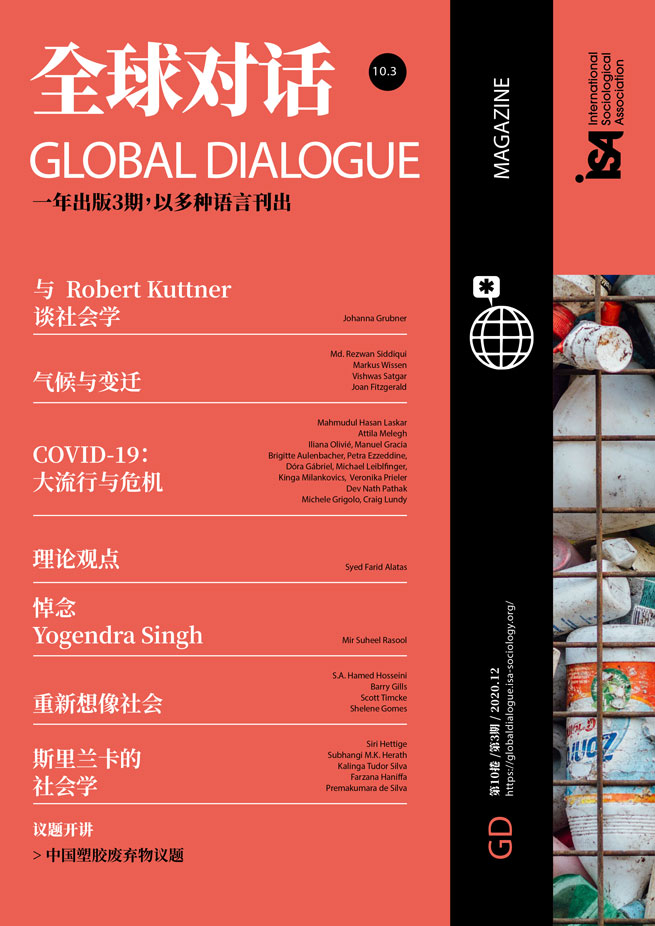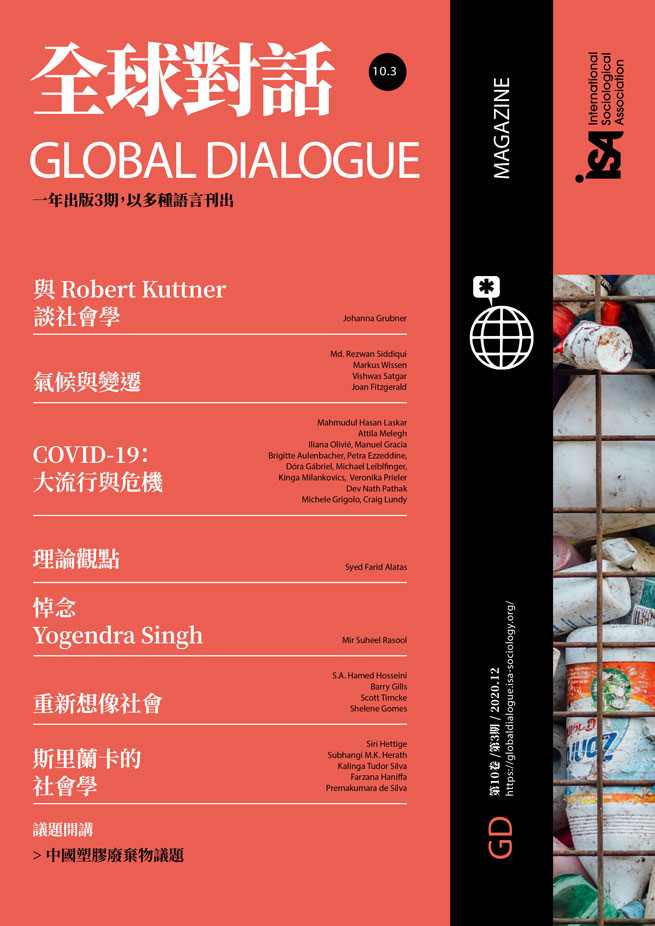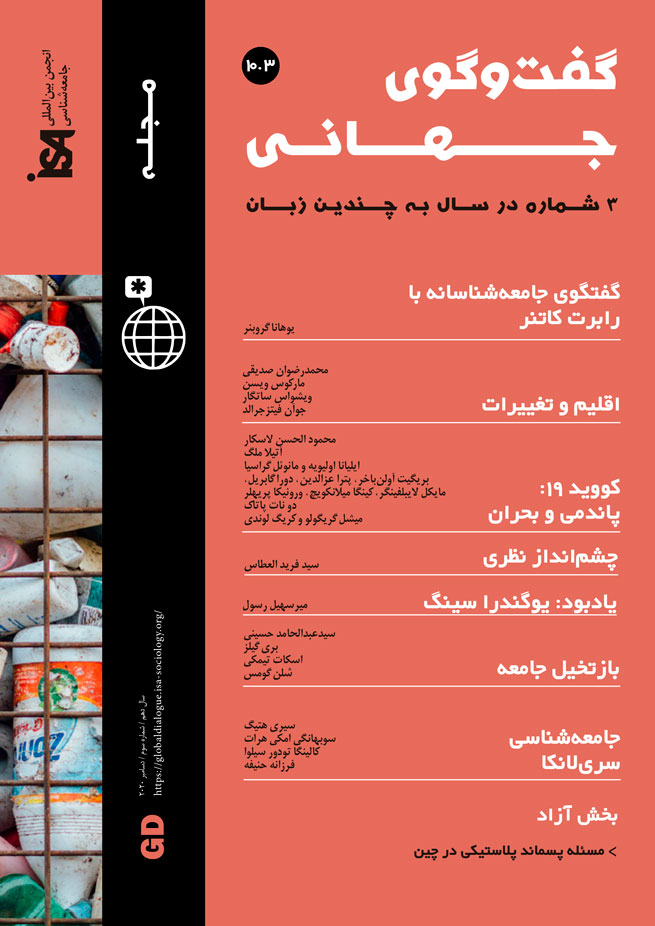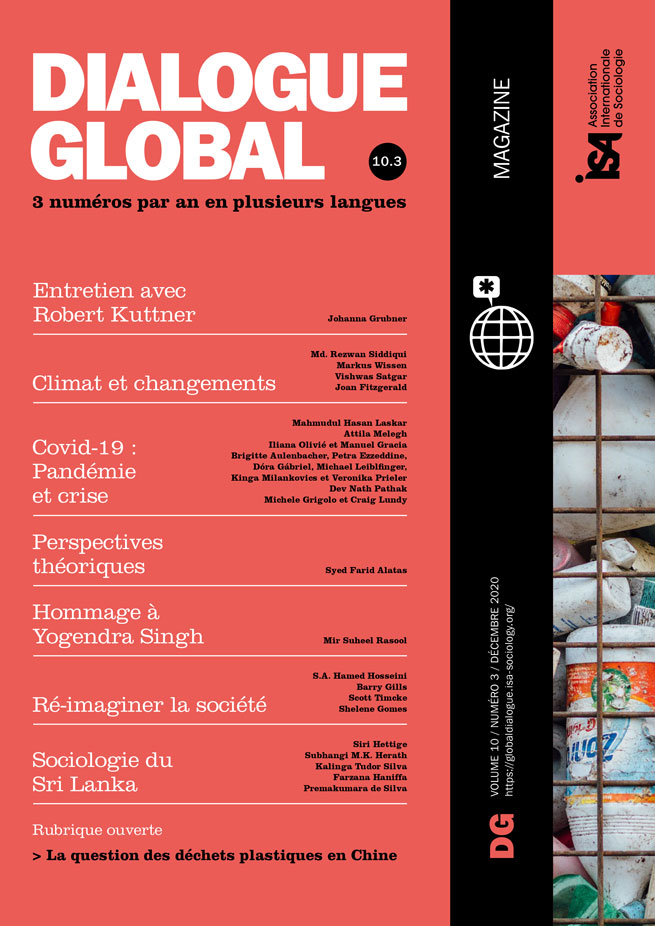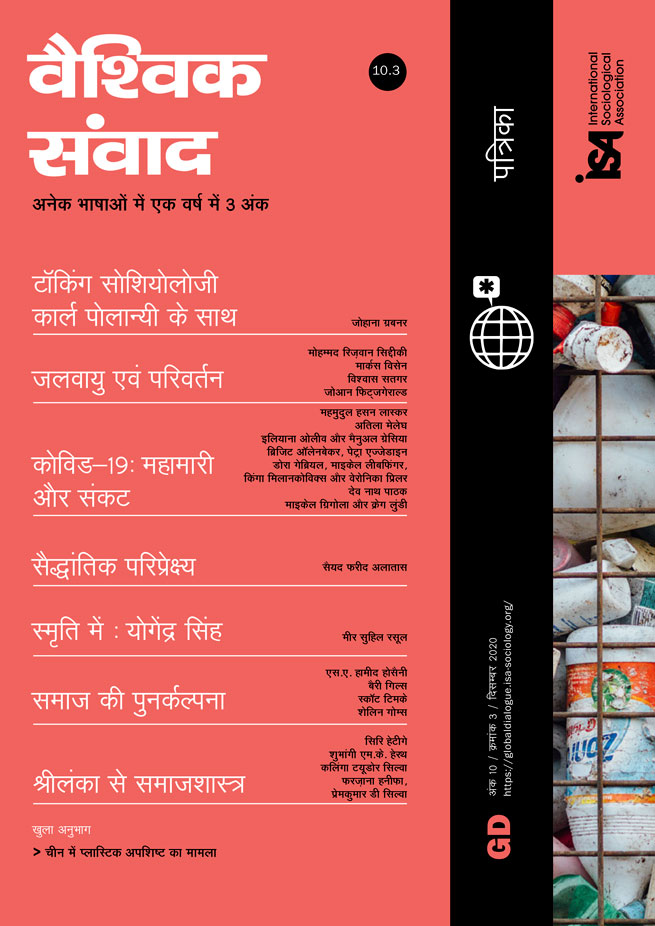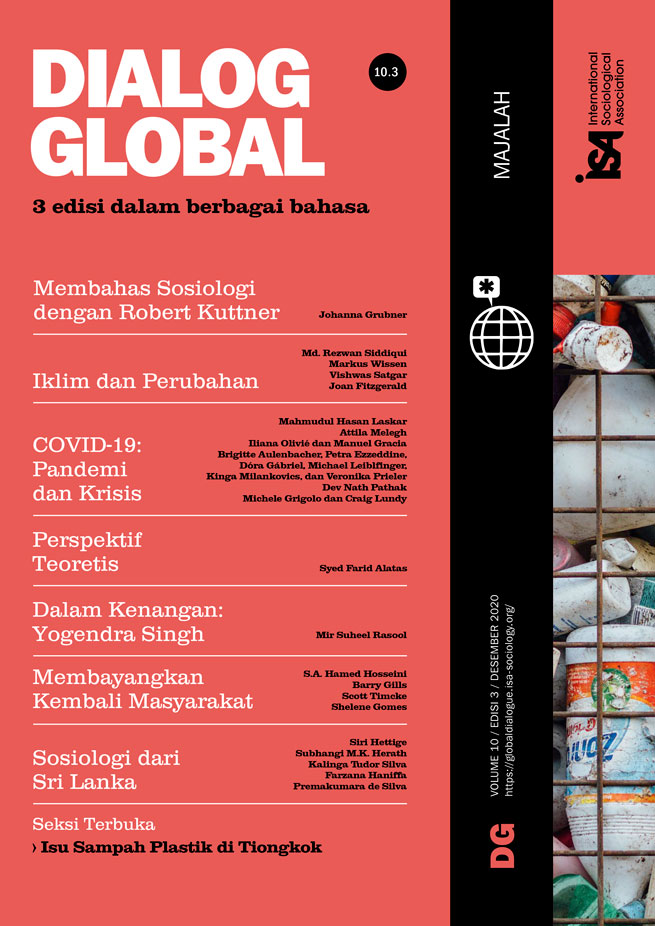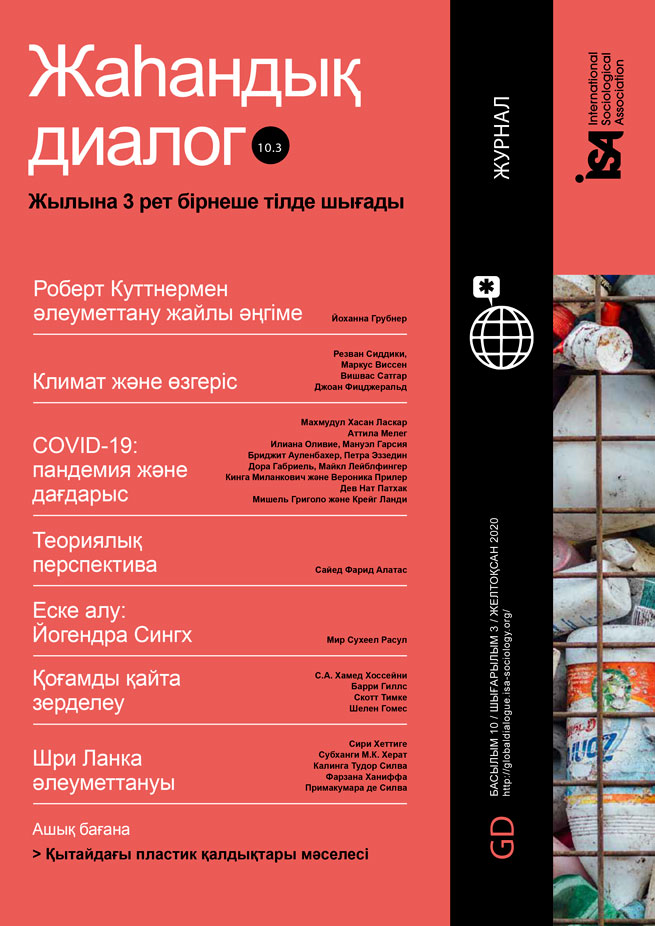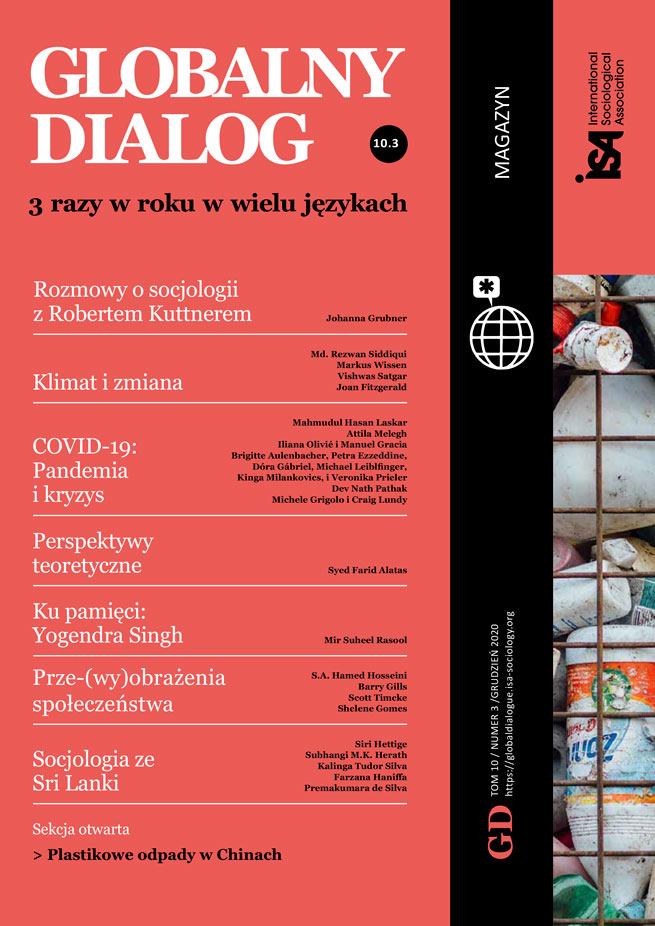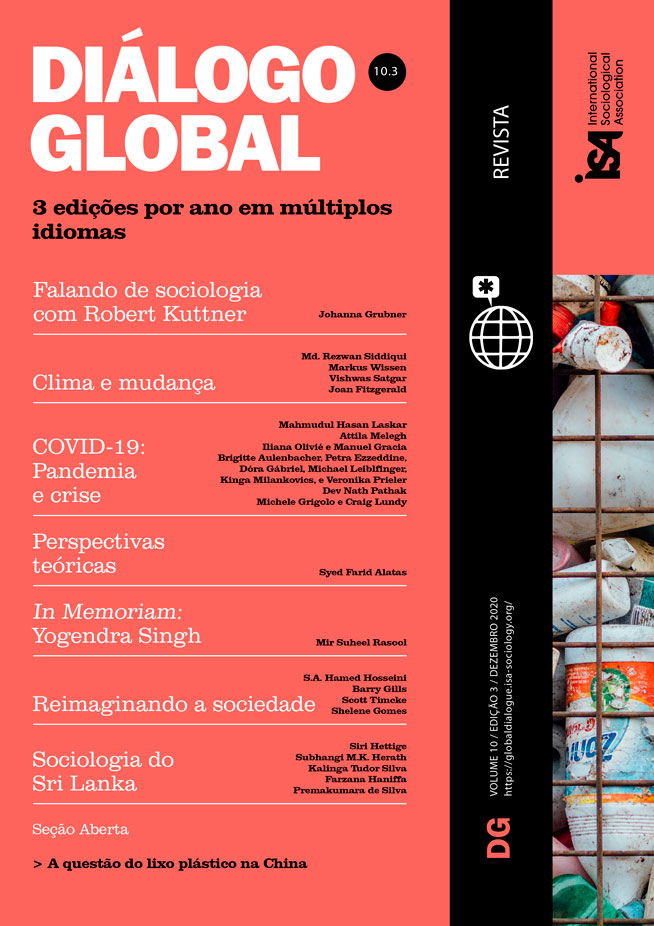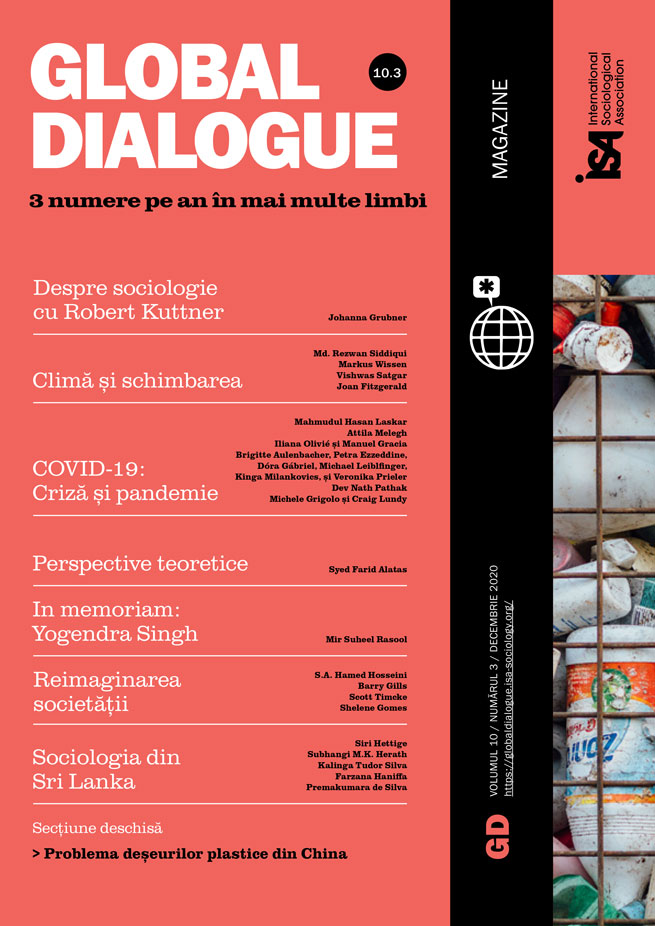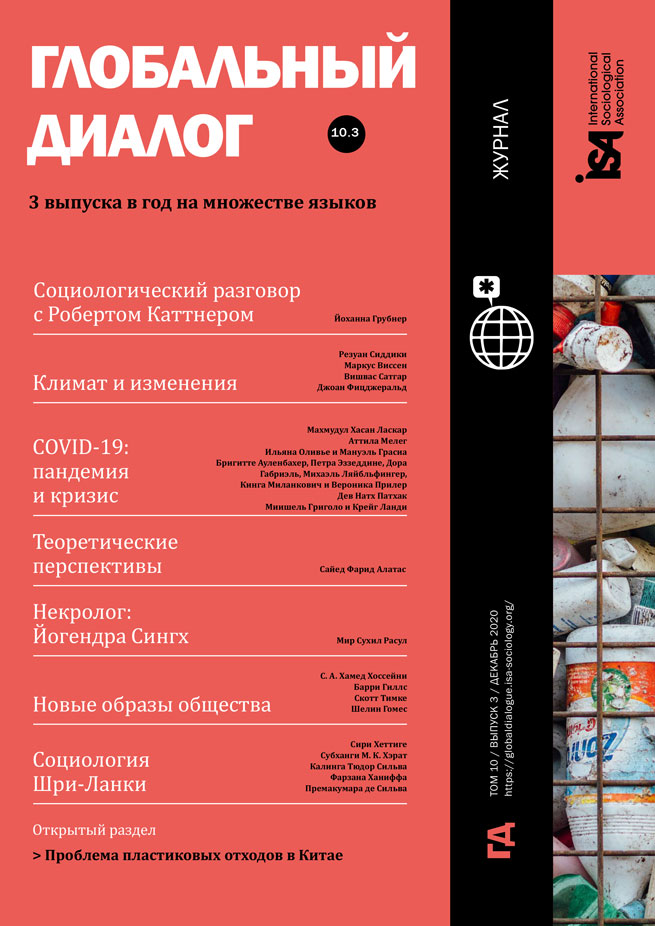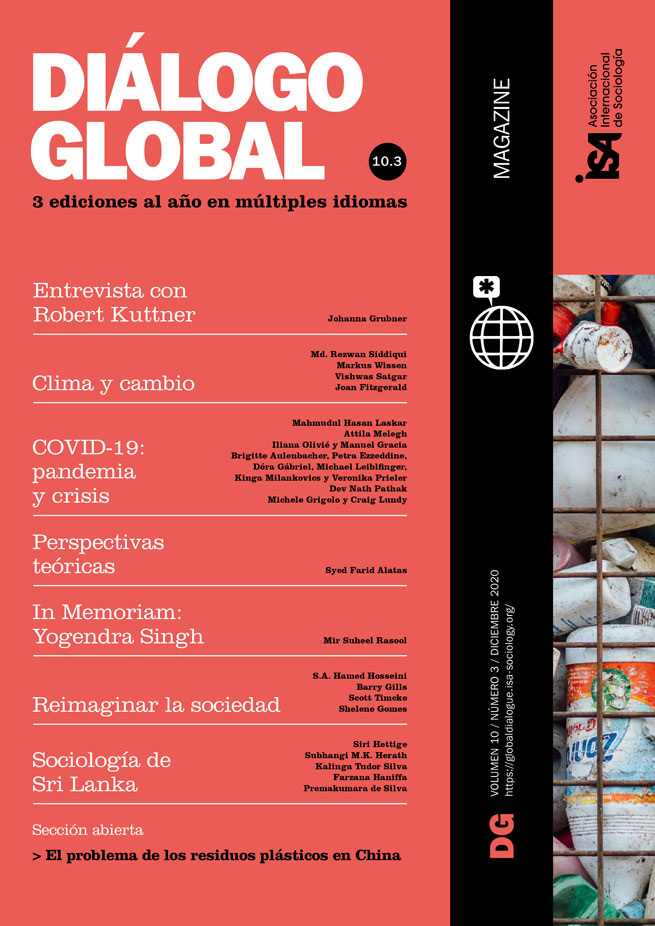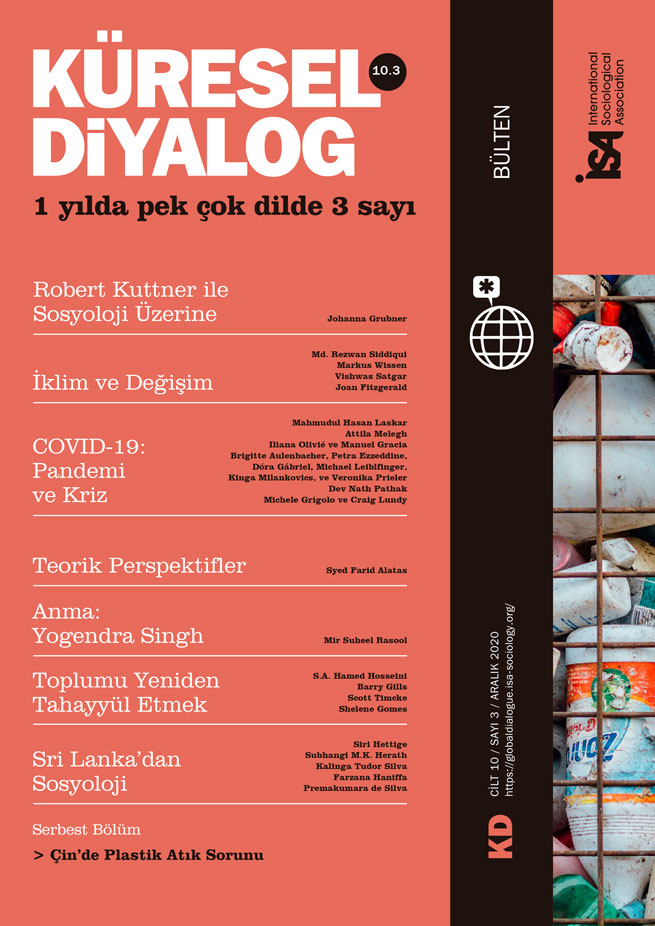Surviving Global Capitalism with Karl Polanyi: An Interview with Robert Kuttner
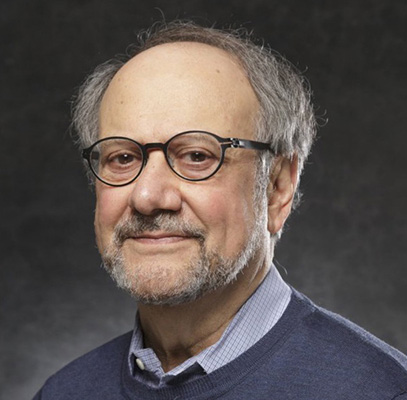
October 29, 2020
Robert Kuttner is co-founder and co-editor of The American Prospect magazine and Professor at Brandeis University’s Heller School. He was a longtime columnist for Business Week, and for the Washington Post syndicate. He was a founder of the Economic Policy Institute and serves on its board and executive committee. Kuttner is author of twelve books, most recently Can Democracy Survive Global Capitalism? and his new book on democracy and the 2020 election, The Stakes. His other books include the 2008 New York Times bestseller, Obama’s Challenge: American’s Economic Crisis and the Power of a Transformative Presidency, and his 2013 volume on the financial crisis, Debtors’ Prison: The Politics of Austerity Versus Possibility. His best-known earlier book is Everything for Sale: The Virtues and Limits of Markets (1997). His magazine writing, covering the interplay of economics and politics, has appeared in The New York Times Magazine and Book Review, The Atlantic, Harpers, The New Republic, New York Review of Books, The New Yorker, New York Magazine, Mother Jones, Village Voice, Commonweal, Dissent, Foreign Affairs, New Statesman, Political Science Quarterly, Columbia Journalism Review, Harvard Business Review, and Challenge. His previous positions have included national staff writer and columnist on The Washington Post, chief investigator of the US Senate Banking Committee, executive director of President Carter’s National Commission on Neighborhoods, and economics editor of The New Republic. He won a number of awards, including the Paul Hoffman Award of the United Nations Development Program for his lifetime work on economic efficiency and social justice. Here he is interviewed by Johanna Grubner, a PhD researcher at the Johannes Kepler University, Linz, Austria and assistant editor of Global Dialogue.
JG: In your book Can Democracy Survive Global Capitalism? published in 2018, you draw upon Karl Polanyi’s analysis of the early twentieth century and argue that we are currently facing a similar situation, both economically and politically. Can you elaborate this argument for our readers and explain how Polanyi’s approach is useful for your analysis of global capitalism?
RK: In the early twentieth century, financial elites and their political allies allowed raw capitalism to overrun other mechanisms of social resilience. This was exacerbated by the demands of the Treaty of Versailles, which combined laissez faire with a debt collector mentality and economic austerity. The result was that life became economically unbearable for ordinary people, especially in Germany and Austria, and masses of people turned to fascism. They did so because they had lost faith in parliamentary institutions, and because extreme economic and political nationalism seemed to promise a better path.
In Polanyi’s telling, the three mechanisms of the nineteenth century economic system were the gold standard, laissez faire commerce, and the idea that labor had to find its price, as a commodity, on the market. The parallels with the present moment are exact, with budget balance and fiscal austerity in the role of the gold standard, the World Trade Organization (WTO) and the ideology of neoliberalism promoting unregulated global commerce, and labor protections being extinguished in the name of free trade. Once again, laissez faire has produced economic catastrophe for ordinary people and political backlash has turned into ultra-nationalism.
What is even more appalling is that we learned in the postwar era that it is possible, as a matter of economics, to buffer pure capitalism with social protections. These make the system more productive as well as more equitable. But the period after 1973 showed that this is a very difficult balance to sustain as a matter of politics. Capitalists do not like the constraints, and resist them.
The consequence has been the same as in the 1920s and 1930s. When working people suffer dislocations, and the political center does not defend them, they turn to the far right. In the 1990s, many turned to the moderate left, but by the 1990s the moderate left had also embraced most of the neoliberal formula.
Now we have a neo-fascist leading the world’s most powerful country, the United States; there is neo-fascism in both the old Europe and the new Europe and very little in the way of credible democratic socialists. All of this is pure Polanyi.
JG: Alongside these significant similarities, today’s capitalist production is, for example, organized along global value chains frequently employing “just-in-time production.” Does this not represent a consequential difference with the global economy of the 1930s? And why is Polanyi’s analysis still fruitful?
RK: If anything, the shift to global supply chains makes Polanyi more relevant than ever. With large corporations outsourcing to Asia, where there are very low-paid and exploited workers, it becomes much harder to maintain social contracts in the democracies to protect workers from the vagaries of the market. Global supply chains are free markets on steroids.
JG: In the US as well as in Latin America and Europe, right-wing populism is on the rise. How do you link the rise of right-wing populism in places like Europe, the United States, and Latin America, as well as the rise of neo-fascism you described before, to the globalization of capitalism and the undermining of state regulation?
RK: The problem isn’t the globalization of capitalism per se. We had a form of globalized capitalism under the Bretton Woods system of 1944 that was explicitly designed to give nations plenty of political and policy space to devise full employment economies protected from the deflationary pressures of global private capital. But the version of globalization imposed since the advent of the WTO and the Maastricht Treaty within Europe is expressly designed to use doctrines of free movement of goods, services, capital (and in the case of Europe, of people) to undermine the capacity of democratic polities to regulate, constrain, and buffer capital. Once again, the reaction of dislocated people is to turn to ultra-nationalists and right-wing populists (and infrequently as in Bolivia, to left-wing populists).
JG: In the past, movements resisting the inequalities of capitalism have aspired to be expressly internationalist. Do you see a relevance and space for such movements attempting to overcome the national level today, or are the strategic advantages of the nation-state the best option for this moment in time?
RK: As I’ve suggested, the nation-state is the locus of the polity and of democratic citizenship. But as the Bretton Woods agreement and the ILO conventions demonstrate, international citizen and labor solidarity is very important as a counterweight to the power of international capital. The problem is that the Bretton Woods period was exceptional. In most circumstances, internationalism in practice is the internationalism of capital, not of citizenship.
JG: In your work, you describe how “mixed economies” delivered unprecedented prosperity to post-WWII Europe and the United States. Can you describe the system of “mixed economy” and its relationship to democracy and the autonomy of states?
RK: The mixed economy was a phrase of the economist Paul Samuelson to refer to an economy that was basically capitalist, but complemented by a welfare state and in some cases by public planning and public ownership, as well as tight regulation of the financial sector and other key industries. The mixed economy has also included regulation of agriculture, state empowerment of trade unions as legitimate social partners, and other uses of government to limit pure capitalism. Because citizenship is expressed at the level of the nation-state, most of these policies are implemented nationally. Europe’s experience with a confederation, on balance, has weakened regulation of capitalism and strengthened capital. This was foreseen and welcomed by Hayek. For Polanyi, a mixed economy was not sufficient, as economics or as politics. What was required was democratic socialism.
JG: An old question for the left in many countries continues to be: How can democratic socialism in an individual nation survive and resist the pressures of global capitalism? Does Polanyi offer insights into this dilemma?
RK: It requires either left governments in the major countries, or explicit barriers against the power of global finance. Polanyi’s cherished Red Vienna lasted about fifteen years. Then it was destroyed by larger forces. We had at least something like social democracy if not democratic socialism for two or three decades after WWII, and longer in Sweden. So if citizens are mobilized, democratic socialism in one country can survive for at least a generation or two. And as Keynes famously wrote, in the long run we are all dead. However, if the global system is sufficiently hostile to domestic social democracy, even consensual systems like those of Sweden or Denmark are at risk. Social benefits and decent wages are deemed globally uncompetitive. Globalism undercuts domestic regulations. The European Court of Justice, representing global neoliberalism on one continent, has deemed several aspects of Scandinavia’s social contracts as incompatible with the European Union’s basic law. Once neo-liberals got into power in Stockholm and Copenhagen, they began deliberately undermining the institutional logic of social solidarity. So we need to revise the global system as well as reclaim domestic politics country by country. The two things go together.
JG: To sustain democracy within global capitalism, you argue in favor of strong national economies. In your understanding, what is necessary to mediate the strengthening of the state with global inequalities maintained by means of citizenship?
RK: I think a just economy needs to be primarily national because democratic citizenship is national. However, citizens of wealthy countries that consume a disproportionate share of the world’s resources also have a responsibility to work for environmental sustainability and greater global economic equity. Laissez faire is one way to try to equalize global incomes, but it does so by increasing political and economic inequality within countries, thereby degrading democracy, and also fails to address the climate catastrophe. As Nicholas Stern famously observed, global climate change is history’s greatest case of market failure. We achieve climate justice and greater global equality by constraining laissez faire, not by liberating it.
JG: In an age significantly shaped by migration and flight, the concept of citizenship with its inherent inequalities is not without contradiction. How do you see demands such as decoupling democratic rights from citizenship status?
RK: Yes, this is tricky. If you are going to have a democracy, that irrevocably brings up the issue of membership. Members of a democracy are known as citizens. That said, a decent democracy extends basic human rights to non-citizens, even if they are not able to vote. And while non-citizens are considered aliens, nobody should be considered alien from fundamental human rights. That’s the purpose of basic treaties and conventions on human rights. In general, the more robust democracies such as the Scandinavian nations tend to be more supportive of basic universal rights even for people who are not their citizens.
But these treaties and conventions are only as good as their acceptance and enforcement by national signatories. The 1951 Convention on Refugees, signed and ratified by 145 nations, requires states to admit applicants for asylum who have a well-founded fear of persecution. The convention also grants refugees access to courts. But both the explicit provisions and broader intent of the Convention are widely ignored or defied, as nations hostile to immigrants and refugees make invented distinctions between economic and political refugees, and make life miserable for those seeking asylum. The same kind of evasion is widely used to deny the basic human rights of workers that are provided in the conventions of the International Labor Organization, which have also been agreed to by every major nation.
JG: The COVID-19 pandemic and the subsequent economic, social, and political developments seem to amount to a deep ongoing crisis in many countries. In your view, what risks for the relation of capitalism and democracy emerge?
RK: The pandemic demonstrates the need for effective governance and the inability of the private market to remedy public health crises. Vaccines and testing regimes are social goods. The countries with effective national governments have done the best at containing the spread of the virus. They have done so in collaboration with the World Health Organization and private NGOs, but the leadership has been governmental. If Donald Trump were a competent neo-fascist, he might have demonstrated the efficacy of an aspiring dictator. But he proved to be incompetent as well as corrupt, thus showing the need for government that is effective and democratically accountable and not just strong.
Robert Kuttner <kuttner@prospect.org>

